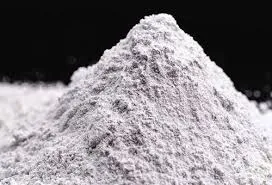
Dec . 04, 2024 14:44 Back to list
MHEC Supplier for High-Quality Methyl Hydroxyethyl Cellulose Products and Applications
Methyl Hydroxyethyl Cellulose (MHEC) An Essential Polymer for Modern Applications
Methyl Hydroxyethyl Cellulose (MHEC) has emerged as a crucial polymer in various industries, predominantly in construction, pharmaceuticals, food processing, and personal care products. This article delves into the manufacturing process of MHEC, its properties, applications, and the significance of choosing the right manufacturer to ensure quality and compliance with industry standards.
Understanding MHEC
MHEC is a non-ionic cellulose ether produced by chemically modifying cellulose, which is derived from natural sources like wood or cotton. The modification involves introducing methyl and hydroxyethyl groups to the cellulose chain. This process enhances the solubility of cellulose in water and improves its performance in various applications.
The unique structure of MHEC grants it several beneficial properties, including excellent thickening, binding, and emulsifying capabilities. Moreover, MHEC is known for its high water retention, which makes it particularly valuable in construction and building material industries.
Properties of MHEC
1. Water Solubility MHEC readily dissolves in water, forming a clear, viscous solution. This property allows it to be used effectively in various aqueous formulations.
2. Viscosity The viscosity of MHEC can be controlled by adjusting the concentration and the degree of substitution of the polymer, making it versatile for different applications.
3. Thermal Stability MHEC exhibits good thermal stability, which is essential in applications involving heat.
4. Biocompatibility As a cellulose derivative, MHEC is considered safe for use in food and pharmaceutical products, aligning with regulatory standards.
5. Film-Forming Ability MHEC can form films, providing a protective barrier in personal care products and coatings.
Applications of MHEC
1. Construction Industry MHEC is extensively used as a thickener in cement-based products, such as mortars, tile adhesives, and plasters. Its water-retention properties ensure workable paste consistency and enhance adhesion, resulting in durable constructions. MHEC also improves the workability of dry-mix mortars, allowing for easy application and spreading.
mhec-methhyl hydroxyethyl cellulose manufacturer

2. Pharmaceuticals In the pharmaceutical sector, MHEC is utilized as an excipient in various dosage forms, including tablets and gels. Its ability to form films and retain moisture is critical in controlling drug release rates, thereby enhancing the bioavailability of active pharmaceutical ingredients.
3. Food Industry MHEC serves as a stabilizer and thickening agent in food products, including sauces, dressings, and dairy products. It helps improve texture and consistency while also extending shelf life due to its water retention capabilities.
4. Personal Care Products In cosmetics and personal care formulations, MHEC acts as a thickener, emulsifier, and film-forming agent. Its gentle nature makes it suitable for sensitive skin products, contributing to creaminess and stability.
Choosing the Right MHEC Manufacturer
The quality of MHEC is heavily influenced by the manufacturing process, and choosing a reliable manufacturer is paramount. A reputable MHEC manufacturer should meet certain criteria
1. Quality Control The manufacturer should adhere to stringent quality control standards, ensuring that every batch of MHEC complies with industry specifications.
2. Technical Expertise A manufacturer with a strong technical background can provide valuable insights into product formulation and application, helping clients choose the right type of MHEC for their specific needs.
3. Customization Look for manufacturers that offer customizable MHEC products, allowing for adjustments in viscosity and solubility to meet particular application requirements.
4. Certifications Ensure that the manufacturer holds relevant certifications, such as ISO or GMP, which indicate compliance with international standards for quality and safety.
5. Sustainability Practices As industries move towards environmentally friendly practices, selecting a manufacturer committed to sustainable sourcing and production is increasingly important.
Conclusion
Methyl Hydroxyethyl Cellulose is a versatile and essential polymer that plays a vital role across various industries. Its unique properties make it suitable for applications ranging from construction to pharmaceuticals and personal care products. By selecting a quality MHEC manufacturer, businesses can ensure they receive a product that meets their specific needs and complies with industry standards, ultimately contributing to their success in the marketplace. Whether you are formulating a new product or enhancing an existing one, MHEC offers the performance and reliability needed in today's competitive landscape.
-
Versatile Hpmc Uses in Different Industries
NewsJun.19,2025
-
Redispersible Powder's Role in Enhancing Durability of Construction Products
NewsJun.19,2025
-
Hydroxyethyl Cellulose Applications Driving Green Industrial Processes
NewsJun.19,2025
-
Exploring Different Redispersible Polymer Powder
NewsJun.19,2025
-
Choosing the Right Mortar Bonding Agent
NewsJun.19,2025
-
Applications and Significance of China Hpmc in Modern Industries
NewsJun.19,2025







